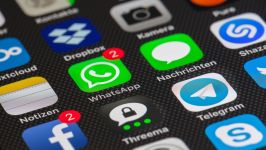Can you actually get in trouble for jailbreaking your own device?
Jailbreaking (aka "rooting" or outright "hacking") is a term that's been in use for nearly as long as the software/hardware with which it's associated. But, as handy-dandy guides and updates for doing the deed proliferate, some remain unsure about what it entails and of the possible consequences.
First of all, a quick definition for those who have no idea what we're talking about:
Jailbreaking allows one to literally break into the very programming code of his or her own mobile device, gaming console or OS.
When you jailbreak, say, your PlayStation 3, you're taking advantage of certain bugs in the particular device/OS that allows you to bypass the digital rights management (DRM) that keeps a user out and administrators in.
In layman's terms: You're able to get in there to see files and thus change things that you weren't really intended to see or change.
You're basically taking control over a product you've purchased but that was designed and distributed by someone else — some say too much control. It's therefore a gray area on ethics.
But, what about the legalities of the thing?
Ask 23-year-old George Hotz, who in 2011 was sued by Sony for being a party to a jailbreaking crew called fail0verflow. This happened to him after similarly jailbreaking the iPhone (permitting the phone to be used with alternative wireless carriers).
Hotz and his associates were charged with eight violations:
- Violating the Digital Millennium Copyright Act
- Violating the Computer Fraud and Abuse Act
- Contributory copyright infringement
- Violating California Comprehensive Computer Data Access and Fraud Act
- Breach of Contract (related to the PlayStation Network User Agreement)
- Tortious interference
- Misappropriation
- Trespassing
Hotz's response was dictated to more than two million people on YouTube in the form of a brief rap video.
After some back and forth, including Hotz being supported by his Carnegie Mellon University professor,David S. Touretzky, for reasons of freedom of speech, the separate parties settled out of court on April 11, 2011, with Hotz being forever barred from hacking any more Sony products.
Posters on the MacRumors forum suggest that with so many jailbreakers out there (for example, an alleged "1 million people jailbr[eaking] 4.3.3 using comex's exploit" in one day), Apple and other companies simply don't have the ability to go after so many people at once. Hotz's case became notorious because he was one of the first and so his case became a hotbed of publicity.
MacRumors posters allege that the worst that can happen to a jailbreaker is being refused service at an Apple Store for a broken phone. If discovered, the jailbreaker may also be "gently persuaded" to send the device in for a factory restore.
"Besides that, you are a free man to do what you want with it at your own risk," says poster TechElementz.
The folks at the iFans forum suggest the same, noting that whereas jailbreaking is "100% illegal," as long as you restores your device before bringing it to an Apple Store, everything should be hunky-dory. Apple is not exactly watching you (not yet, we assume) and your phone/device to see if you've jailbroken it.
LifeHacker notes that "We love jailbreaking our iPhones, iPod touches, and iPads because it opens up so many great new possibilities. It also has the potential to cause a lot of problems and headaches."
The site lists four reasons you may not want to jailbreak your iDevices:
1. Lack of stability: Jailbreaking may lead to unexpected results and side effects you may not be able to fix on your own.
2. Updating is a pain: When you update a jailbroken device, you lose said jailbreak, meaning you have to re-load it again. This can get tiresome after a while.
3. Restoring will (most likely) be a necessity: Jailbreaking can be easy, but sometimes it doesn't work. Restoring your phone takes little time, but your music, videos, photos and the like take a lot longer to restore. Again, this can be a tiresome prospect.
4. Good jailbreaking apps can sometimes be even more expensive than the legal ones that can be easily purchased online.
Yahoo! News confirms that whereas jailbreaking your PlayStation may not necessarily mean jail time, it does come with some nasty risks.
These include fiscal expense (modchips are expensive), Sony's tireless labors in finding ways to patch said chips (rendering your pricey modchips useless), and your IP being banned on its gaming network if you're caught by Sony (who apparently does watch you from the other side) and the whole illegality thing.
Yahoo! News also reminds everyone that, when jailbreaking iDevices, you can "kiss your warranty goodbye."
The whole network ban in particular seems to be the biggest kibosh to the whole jailbreaking thing, as confirmed by TechCrunch — "In short, hackers in online games ruin everything" — and Gizmodo.
Yes, jailbreaking might be a relatively easy way to get in and take advantage of your devices and consoles in ways you couldn't otherwise. But, considering the costs, you need to ask yourself a better question: "Is it really worth it?"
Like what you're reading? Follow @profklickberg.









